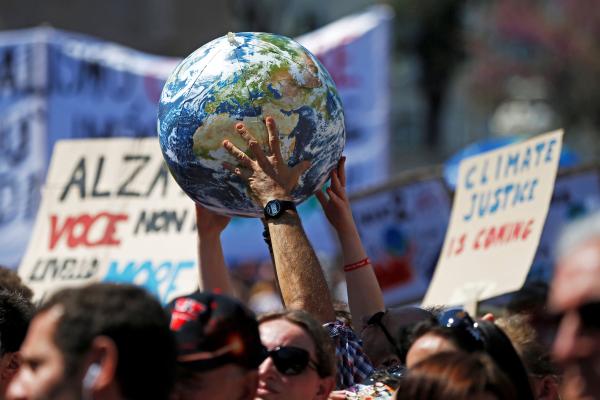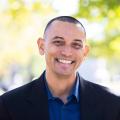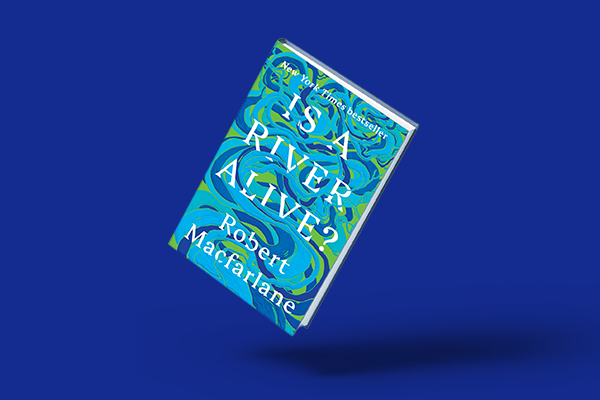Last week I attended a moving memorial service for a friend and former colleague Max Edkins, a climate warrior who helped lead the World Bank’s Connect4 Climate (C4C) Initiative. Max was a beloved father, filmmaker, activist, and scientist who tragically lost his life in the now infamous Ethiopian Airlines Flight 302 that crashed on March 10, killing the more than 150 people on board. The auditorium was filled with World Bank staff, his family, former classmates, friends, and a cross section of people involved in almost every facet of the climate justice movement. Max was an indefatigable advocate and changemaker who combined deep knowledge of environmental science with a charming personality and natural communication skills. He understood that people’s hearts and minds will not be won over with facts and figures alone — instead the climate crisis needs to be felt and understood through the lens of real people’s struggles and triumphs. Max understood that telling the stories of people’s connection to our glorious but fragile planet has the power to transform, and he was determined to give the microphone to the people living in places where the impacts of climate change are already the most destructive.
In 2011 Max won a short film competition sponsored by C4C with a film titled The World Has Malaria. In a clever and disarming way the film explains the cause and impacts of climate change through a one-minute dialogue between a group of Maasai farmers in Tanzania. In recent years, the Maasai have experienced more frequent and extreme droughts that have left cattle, a critical source of their livelihoods, dead. In the video a man uses a soccer ball to explain how the burning of fossil fuels, primarily in the global North, is putting more and more carbon dioxide into the blanket that protects the earth, causing warming and, ultimately, climate change. The Tanzanian farmer responds with a straightforward but compelling metaphor: “So now the world is like someone who is suffering from malaria.”
His assessment is much more fitting than may meet the eye. It is easy to be complacent about the threat of malaria until you contract it. Malaria usually starts with shivering and chills, followed by a high fever, sweating, and a return to normal temperature. However, malaria signs and symptoms typically don’t begin until a few weeks after being bitten by an infected mosquito — and the delayed response can often be deadly.
Seemingly every week a new major report comes out sounding the alarm about the escalating crisis of climate change. You may have missed two of these from just this past week that join a drumbeat that often causes me to lose sleep as I worry about the future that my 6- and 8-year-old sons will inherit. First, on Saturday the sensors at the Mauna Loa Observatory in Hawaii indicated that concentrations of the greenhouse gas has reached 415 parts per million (ppm), which means that for every 1 million molecules of gas in the atmosphere, 415 are made up of carbon dioxide. This means that even if we manage to move rapidly toward renewable energy and use other measures to help stanch the steady flow of carbon dioxide into the atmosphere, the next generation will likely be saddled with permanent negative consequences of our artificially elevated levels of CO2. Also last week, the Intergovernmental Science-Policy Platform on Biodiversity and Ecosystem Services (I.P.B.E.S.), a research arm of the United Nations, told the world that we may be on our way to losing as many as a million plant and animal species. The 1,000-plus page report details the effects of climate change on marine and other wildlife and emphasizes like never before the devastating impact of biodiversity loss to humans.
But I wonder if these reports are having any demonstrable impact on public perceptions of the climate crisis or are shifting the dial on any of our priorities. Multiple studies over the years have shown that even people who care about climate change rarely vote on it. Despite this challenge there was a piece of good news that also came out recently in a CNN poll last month: 82 percent of Democratic and Democratic-leaning independents said it is very important for the next president to take aggressive action to slow the effects of climate change — a higher percentage than for any other issue. These numbers are driving support behind the Green New Deal and sparking both scrutiny and needed debate within the Democratic Party around climate change, including with many environmental activists and organizations taking aim at former Vice President Joe Biden this week for his more middle-ground approach.
Sadly environmental action morphed from a bipartisan issue in the 1970s and 80s into a highly partisan and polarized issue from 1992 to the present. The lobbying influence and disinformation campaigns of big oil and coal certainly played a key role — though there seems to be something much more sinister and spiritual that is also taking place. An issue that is about our existential future and the current health of our planet should never be as a partisan cause, yet that is exactly what has transpired.
To be clear, I can understand how difficult this challenge to rally public sentiment on climate change can be. For too long, while I believed the overwhelming science but my sense of urgency was stunted by an all-too-common notion that it was not a pressing or dire threat to human dignity and the sacredness of life. Instead I was preoccupied with addressing what felt like more immediate threats such as the crisis of AIDS, extreme poverty, human trafficking, and the utterly preventable, stupid deaths that millions of children under the age of 5 suffer due to malnutrition and disease. All this time I failed to realize the degree to which climate change threatens almost every other life and justice issue that I cared about and that our faith calls us to prioritize it. It wasn’t until I had the privilege of participating in a conference in 2015 hosted at the Vatican with a cross section of scientists and global interfaith leaders that my moral compass became permanently altered and climate change catapulted to the top of my priority list. The conference took place just months before the watershed Paris Climate conference and was held to inform and preview Pope Francis’ groundbreaking encyclical Laudato Si. Our conversation around Pope Francis’ clarion call to protect our common home and respond to the cry of the poor and the cry of the Earth removed the scales from my eyes and lit a fire that refuses to be extinguished.
But while Laudato Si provides a convincing and comprehensive theological, moral, and scientific case for bold action and transformational change, I fear that far too many churches, particularly evangelical ones, are still blinded by a false theology of dominion rather than a liberating theology of stewardship and interdependence. Based on research that Sojourners conducted a few years ago, Christians, particularly evangelicals, respond the most to moral and theological arguments such as “we have a moral duty to take care of creation and preserve it for future generations” or that “we have an obligation to care for the ‘least of these’ — including those who suffer most from food scarcity, droughts, flooding and increased diseases caused by climate change.” While it is good news that this argument is often most persuasive, the bad news is that people in our pews are not hearing these arguments enough from the pulpit, the small group Bible study, etc.
While leading the Faith Initiative, one of my favorite faith-based projects that the World Bank directly funded was through the Nigerian Interfaith Action Association (NIFAA). NIFAA worked tirelessly to overcome the scourge of malaria in Northern Nigeria by equipping and mobilizing pastors and imams to educate and persuade their communities to use insecticide treated bed nets. Previous efforts to combat malaria in Northern Nigeria had largely failed due to distrust between the government and communities and the difficulties associated with changing people’s behavior. Religious leaders were enlisted to use their moral authority to convince people that the threat of malaria was real and that by using insecticide-treated bed nets they could protect themselves and their families. The approach was wildly successful, and bed net use quadrupled in places the program was active. In a similar vein, pastors and clergy are uniquely positioned to influence and persuade their members to take the threat of climate change seriously and to transform climate spectators into climate warriors.
Like malaria, we know how to prevent climate change and help cure a warming planet. We must advance and embrace political and policy cures such as taxing and placing a price on carbon, dramatically increasing investments and incentives that will accelerate a desperately needed shift to renewable energy, incentivizing and requiring greater energy efficiency in automobiles, buildings, factories, and more. There are also personal actions that each of us can take, which may be seemingly tiny on their own, but when multiplied can make a significant impact. These include living within our fair share of the world’s resources and environmental limits in terms of what we eat and the food we throw away, how we travel, making our homes more energy efficient, and reducing our over-consumption of unnecessary stuff. While these daily stewardship decisions are important, what is even more important is how we use our voices and power as citizens, consumers, and voters. We must transform the politics of denial, delay, and incrementalism into a politics of urgent, bold and transformational action.
Yes, the world has a worsening case of malaria. But the most pertinent and pressing question is now: Are we willing to make the sacrifices and commitments to become the cure?
Got something to say about what you're reading? We value your feedback!







